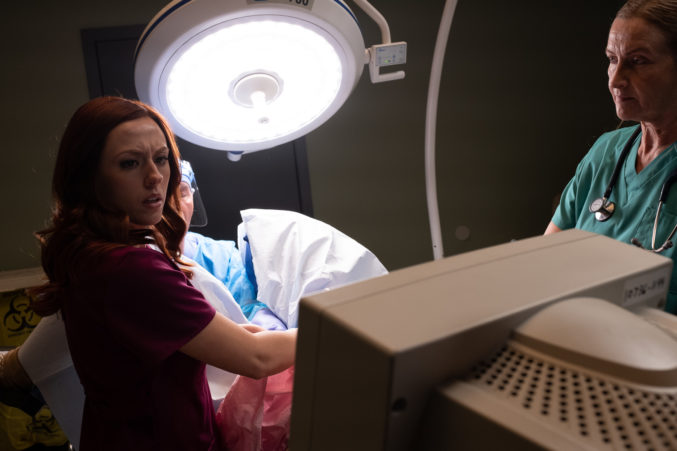I went along to see the pro-life movie ‘Unplanned’ yesterday. It began showing in Irish cinemas last week and the run has now been extended into a second week due to public demand, which is good news. It is certainly a film anyone who is pro-life ought to try and see, and maybe bring along an open-minded friend as well, because I think it has the capacity to change minds.
There was a time when niche Christian movies were reliably dire. Unplanned has roughly the production values and acting standards of an average TV movie, which is a big improvement on the past. It means it is watchable, even for a neutral, and very watchable if you like its basic message.
It is based on the true story of Abby Johnson who ran a Planned Parenthood clinic in Texas and ‘defected’ to the pro-life cause ten years ago. Planned Parenthood is, of course, the biggest abortion provider in the world.
Johnson was raised as a South Baptist, but left that Church because of her pro-choice stance. She and her husband joined the much more liberal Episcopalian Church and then, following her resignation from Planned Parenthood, both she and her husband became Catholics.
The movie shows how and why Johnson joined Planned Parenthood. It makes her decision entirely explicable, which is to its credit. The pro-choice position is properly set out. We hear the normal arguments in favour of a woman’s right to choose and why abortion can seem like an understandable choice made by women in often very difficult situations.
Would a pro-choice movie be as charitable towards the pro-life position, or would they simply be condemned as ‘misogynistic’? That is certainly how they are depicted in the likes of ‘The Handmaid’s Tale’.
Johnson herself had two abortions, one surgical, and the other chemical, that is, she took an abortion pill. The second time around she had just divorced her husband and no longer wanted any connection to him, which is what a baby would have meant. This seems to be a reason why many women have abortions; basically, they do not want a permanent tie to the man who made them pregnant.
Also to the movie’s credit is that it casts some pro-lifers in a very unflattering light. They are seen at the railings surrounding the clinic shouting abuse at the women going in for abortions. The heroes are the activists who stand outside to pray and gently offer support to the women.
In addition, the movie does not demonise the clinic workers. With one exception they are sympathetically shown. They are women doing a job for what they see as a good cause.
Contrast this with various movies of recent vintage that routinely demonise priests and nuns and shamelessly manipulate our emotions to a far greater extent than Unplanned.
The one real villain is the ‘corporate suit’, that is, Johnson’s Planned Parenthood boss. But the makers could have made her much more of a cardboard cut-out baddie if they wished. Lots of movies have a ‘corporate suit’ villain who ruthlessly represents the interests of Big Business.
There are one or two corny scenes in Unplanned, mainly showing Johnson’s family life, and the scene depicting her miscarrying after she takes an abortion pill was too bloody for my liking.
But aside from that, Unplanned is well worth seeing. Obviously, it will confirm pro-lifers in their existing views, but neutrals might well gain an insight into the abortion industry they would never get from reading a million articles.
It is a worthy companion movie to Gosnell, about the notorious abortion doctor, Kermit Gosnell. Both films show that Christian and pro-life film-makers are learning their craft and finding ways to reach wider, more mainstream audiences.
PS Gosnell has not yet been shown here. Perhaps the success of Unplanned might change that?
















